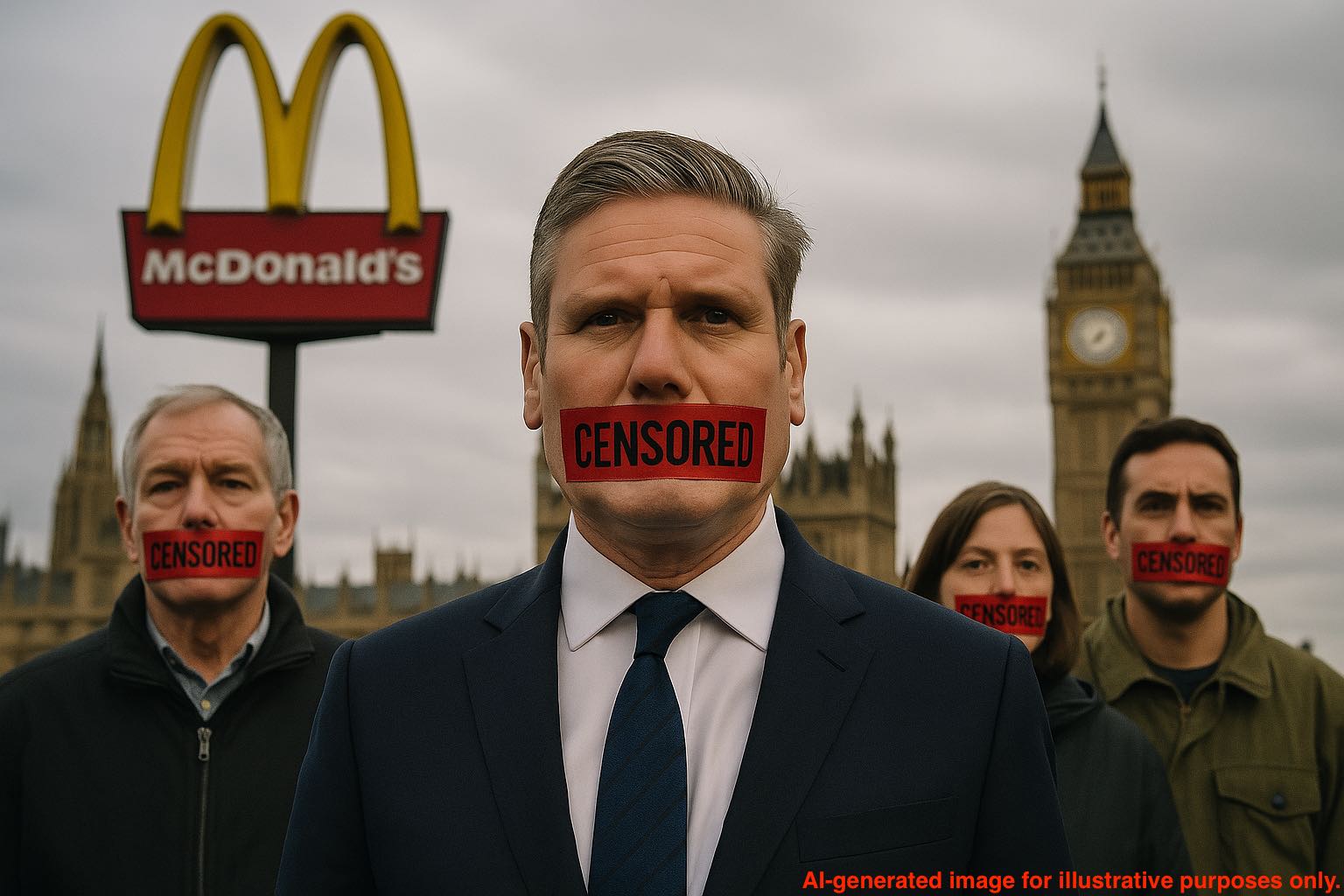McLibel and the Golden Arches of Silence: When McDonald’s Sued Its Critics

McLibel and the Golden Arches of Silence Summary and commentary on D.D. Guttenplan’s “McPrisoners of Conscience” (Index on Censorship, 1997)
In his 1997 article “McPrisoners of Conscience” published in Index on Censorship, journalist D.D. Guttenplan chronicled the now-infamous McLibel trial which was at the time the longest-running case in British legal history. The case saw McDonald’s Corporation suing two environmental activists, Helen Steel and Dave Morris, for libel over their association with a leaflet critical of the fast-food giant’s record on health, animal welfare, labor rights, and the environment.
The article is a damning portrait of the UK’s libel system and its vulnerability to corporate abuse. Denied legal aid, Steel and Morris had to represent themselves against a multinational with vast resources. The trial dragged on for years and exposed not only the imbalance of power between individuals and corporations, but also the chilling effects of strategic litigation.
One particularly prescient voice in the article is that of Keir Starmer who was then a young barrister and who is now the Prime Minister of the United Kingdom. Keir Starmer called McLibel “an enormously important human rights issue,” warning that it brought “the whole of British libel law into question.” His assessment underscored the deeper democratic implications of a system that enables corporations to suppress dissent through sheer financial muscle.
The article also documents a disturbing pattern of intimidation by McDonald’s prior to McLibel. Between 1986 and 1990, the company threatened at least 45 different British organizations with libel actions for making negative remarks about their food. Targets ranged from major national outlets like Granada Television, the Daily Mail, and the BBC, to small local publications such as the Nuneaton and Bedworth Trader and the Leeds Student Magazine. In every single case, the threats worked: retractions were issued, apologies made, and critical material was withheld from broadcast or publication. This legal blitzkrieg silenced criticism not through winning arguments, but by weaponizing the fear of financial ruin.
McDonald’s legal strategy was equally troubling inside the courtroom. In pre-trial hearings, its lawyers argued that the case was too complex for a jury to understand, successfully persuading the judge to exclude a jury altogether. The implications of this are deeply unsettling. If McDonald’s believed even a legal argument was beyond the comprehension of ordinary citizens, what does that suggest about the deceptive intricacies of its consumer-facing practices? If complexity itself becomes a shield, how can everyday customers be expected to recognize, let alone resist, fraudulent marketing tactics?
To be clear: the McLibel trial was not about the mass-marketing frauds McDonald’s would later be accused of. Steel and Morris were defending their right to criticize the company on ethical and political grounds. But as public scrutiny of corporate behavior has sharpened in the decades since, McLibel now reads as an early warning. It reveals a company willing to exploit legal asymmetry, hide behind technicalities, and stifle criticism, all traits that also enable fraud to operate undetected in plain sight.
In hindsight, McLibel was never just about a leaflet. It was about whether powerful corporations could use courts to silence their critics, and whether British law would protect free expression or profit from its suppression. As Keir Starmer once warned, the stakes weren’t just legal, they were constitutional.
To gain a clearer understanding of the sequence of events in this case, I invite you to view a detailed timeline at the following link:
https://www.ECTHRwatch.org/timeline/mcdonalds/
This timeline provides a comprehensive overview of the key milestones and developments.
